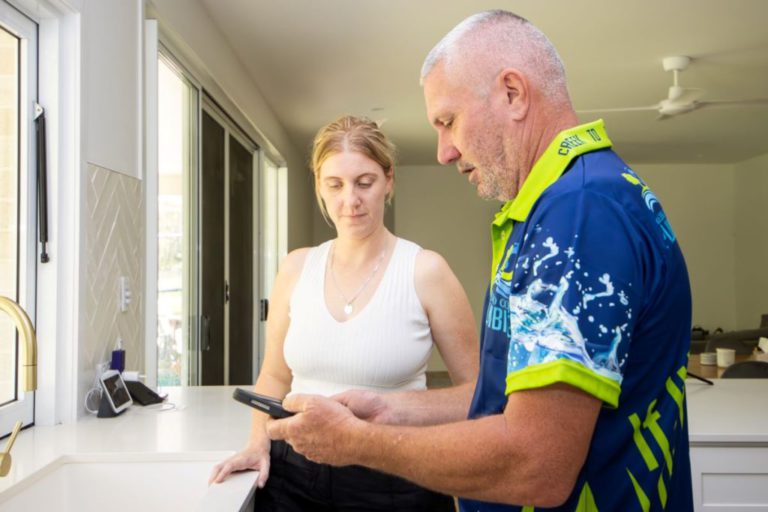Choosing the ideal hot water system for your household requires a thorough evaluation of various factors that extend beyond basic functionality. In today’s market, options prioritise energy efficiency, substantial long-term savings, and their compatibility with modern technologies, including solar power and smart home systems. For residents in Queensland, the decision-making process frequently focuses on two particularly popular choices: solar hot water systems and heat pumps. Gaining a comprehensive understanding of the advantages and features of these systems can empower you to make an informed choice that aligns with your household’s unique requirements.
Both alternatives present energy-efficient solutions when compared to conventional electric storage or gas systems. However, they operate differently and cater to distinct household demands, varying climate conditions, and budgetary constraints. This article will delve deeply into the unique characteristics of each system, highlighting the increasing preference for heat pump systems among homeowners seeking efficiency and cost-effectiveness.

Understanding the Mechanisms Behind Solar Hot Water and Heat Pump Systems
Solar Hot Water Systems Explained
Solar hot water systems leverage specially designed collectors mounted on roofs to capture energy from the sun. The solar energy harnessed is then employed to heat water that is stored in a dedicated tank, providing an environmentally friendly hot water solution. Most systems feature a backup heating method, either electric or gas, to guarantee a consistent supply of hot water during overcast weather or peak demand periods, thereby ensuring comfort and convenience for your household.
Heat Pump Hot Water Systems Explained
Unlike solar hot water systems, heat pumps function independently of direct sunlight. They extract warmth from the surrounding air using a refrigeration cycle and transfer this heat into water stored within a tank. This process is similar to the operation of an air conditioning unit, but in reverse. Heat pump systems do not necessitate rooftop components, simplifying their installation and making them accessible for a broader range of homes.
Comparing Efficiency and Performance Factors of Hot Water Systems
| Factor | Solar Hot Water | Heat Pump System |
|---|---|---|
| Requires direct sunlight | ✓ | ✗ |
| Operates effectively in shaded areas | ✗ | ✓ |
| Available for night-time use | ✗ | ✓ |
| Requires roof space for installation | ✓ | ✗ |
| Consistent performance in winter | ✗ | ✓ (in QLD climates) |
| Eligible for STCs/rebates | ✓ | ✓ |
| Compatible with solar PV systems | ✗ (standalone) | ✓ |
Note: In the warm climate of Queensland, heat pumps typically maintain high efficiency throughout the year, establishing them as a reliable and practical choice for homeowners.
Key Considerations for Installation and Ongoing Maintenance of Hot Water Systems
The installation of solar hot water systems necessitates meticulous placement of collectors on your roof, which can complicate the installation process, particularly in older homes or those with limited roof access. Factors such as shading, roof orientation, and pitch can significantly impact performance, which makes thorough planning essential. Moreover, the positioning of the tank and plumbing can restrict configuration options, leading to a more complex installation experience compared to alternative systems.
On the other hand, heat pumps are generally installed at ground level and are available in either integrated or split systems, taking up a footprint comparable to that of conventional electric tanks. They do not require any rooftop components, which streamlines the installation process, making it more manageable for homeowners. Additionally, maintenance for heat pumps is often less complicated, as they are less exposed to UV rays and adverse weather conditions, thereby decreasing both the frequency and costs associated with upkeep.
Maximising Your Savings by Selecting the Right Hot Water System
Both solar hot water systems and heat pumps play a significant role in reducing energy bills. However, heat pumps often yield greater savings for households that:
- Experience limited sunlight during the day and require a dependable hot water source
- Utilise hot water during early morning or late evening hours when energy costs are typically higher
- Already possess rooftop solar PV systems and wish to boost their energy self-consumption
- Prefer to avoid reliance on roof structures or do not wish to penetrate roof tiles
Since heat pumps operate using electricity, they can be programmed to function during peak solar generation hours. This adaptability makes them an ideal complement to existing solar panel systems. Instead of exporting surplus energy at a diminished feed-in tariff, homeowners can directly harness their solar energy to efficiently heat water, maximising both cost-effectiveness and energy savings.
Assessing Upfront Costs and Available Rebates for Hot Water Systems
Both solar hot water systems and heat pumps qualify for Small-scale Technology Certificates (STCs), which can substantially reduce the purchase price, making these systems more accessible for homeowners. The quantity of STCs available is influenced by various factors, including geographical location, system size, and efficiency ratings. Furthermore, heat pump systems may be eligible for specific rebates in Queensland under the Energy Efficient Communities Program, which vary based on household characteristics and the type of installation.
To navigate these rebate options effectively, it is highly recommended to consult with a qualified installer like Creek to Coast Plumbing. They can provide expert guidance on eligible systems and manage the rebate application process, ensuring that you benefit from all possible savings as part of the installation service.
Choosing the Most Suitable Hot Water System for Queensland Homes
In the coastal climates of Queensland, including the Sunshine Coast and Moreton Bay, heat pumps often outperform solar hot water systems due to their consistent performance, simplified installation, and compatibility with solar energy technologies. They are particularly beneficial for homes that experience shading or have semi-sunny conditions, and are exceptionally effective in residences equipped with battery storage or smart controllers that optimise energy use.

Evaluating the Best Choices for Hot Water Systems
While solar hot water systems maintain their relevance, particularly in homes with unshaded, north-facing roofs that have high daily hot water requirements, heat pump systems provide a more versatile and comprehensive solution for many homeowners throughout Queensland. They deliver reliable performance, simplified installation processes, and seamless integration with existing solar PV systems, making them a worthwhile investment for energy-conscious homeowners.
If you are considering an upgrade, we invite you to explore our Heat Pump Hot Water Systems Installation Page for more information or to request a tailored quote that caters to your specific needs.
The Article: Heat Pumps vs Solar Hot Water: Which is Superior? first appeared on https://writebuff.com
The Article Heat Pumps vs. Solar Hot Water: A Comparison of Efficiency Was Found On https://limitsofstrategy.com







It’s fascinating how the choice between solar hot water systems and heat pumps really reflects our broader relationship with energy and technology. Living in Queensland, I’ve noticed more neighbors opting for solar solutions, partly due to the sunny climate. The integration with smart home technology is also a game-changer; it’s amazing to control these systems from our phones.
It’s interesting how location plays such a pivotal role in energy choices. In Queensland, the abundant sunshine certainly makes solar hot water systems a practical option. I’ve read that places with similar climates can really benefit from those systems, reducing reliance on traditional energy sources.